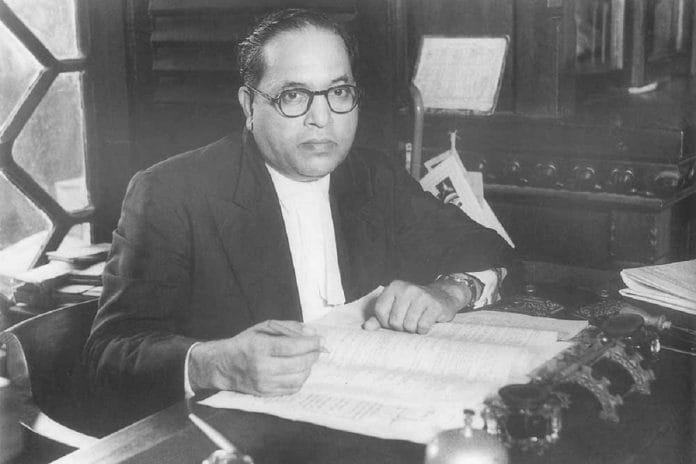In this excerpt from her book ‘Indian Instincts’, Miniya Chatterji writes that stalwarts of Indian politics, literature and religion would have been declared anti-national by today’s standards.
Would Dr B.R. Ambedkar, the man who led the writing of the Indian Constitution, be considered anti-national today? Ambedkar had an antagonistic relationship with Mahatma Gandhi and many other leaders of the freedom movement in the 1930s and 1940s. He had also rejected the Hindu religion. In 1939, Ambedkar said, ‘Whenever there is any conflict of interest between the country and the untouchables, so far as I am concerned, the untouchables’ interests will take precedence over the interests of the country,’ a statement that, among several others, clarified his allegiance to his cause over his country. All of these actions would be considered anti-national today!
Would the same tag also be placed on Rabindranath Tagore, the brilliant poet and Nobel laureate? After all, Tagore had rather radical views on nationalism. He believed that intense love for the nation, which manifests in the conviction of national superiority and the glorification of cultural heritage, is used to justify narrow-minded national interest. Writing in 1917, Tagore said, ‘When this organization of politics and commerce, whose other name is the Nation, becomes all powerful at the cost of the harmony of higher social life, then it is an evil day for humanity.’
And going by the reasoning rationale, would Gautama Buddha, the founder of Buddhism, also be considered anti-national? He went against the wishes of the ruler, his father, and abandoned his responsibility to govern Shakya. He must have been distinctly anti-establishment as well to have gone ahead and created a new religion!
But all these debates and arguments were quickly set aside.
The events of the last two years of right-wing political leadership in India have been such that in the name of nationalism we are now often told what we can and cannot eat, what we can and cannot watch, what we can and cannot speak about, what we must sing and how. Couples who merely hold hands are harassed and attacked, because expressing love is not ‘Indian’. Are all notions of rights to be immobilized in the face of nationalism? Are we yet another nation state in the developing world that initially promised high ideals of emancipation and freedom to its citizens, and is later unable to do so? Or is ‘nationalism’, and even ‘anti-nationalism’, so abstract that its meaning can be manipulated to intimidate and beat down voices of dissent and criticism?
India is a diverse country, and its people have different views about the idea of India and their relationship with it. Instead of silencing those who hold a different view, why can we not respect these differences? And why can the reason for that not be the Constitution or our laws, but basic respect towards humanity and human diversity?
We have given enough importance to politics in regard to nationalism. Perhaps it is because we do not make enough of a distinction between ‘nation’ and ‘nationalism’. As we know, nation states are a nineteenth-century European creation, and following in Europe’s footsteps, India became one only seventy years ago. But nationalism is an emotion, it is a sense of relationship with the community that we agree to be governed with. Nationalism
predates nation states. Our ancestors could have felt nationalistic towards their tribe or kingdom, just as we do towards our country. For various reasons, we agree to be part of a common governance structure, and so an entity that has political boundaries—tribe, kingdom, country—is created. Therein lies the link between politics and nationalism. But in a liberal set-up in any era, the way we feel towards a specific entity must not be defined by the political class. It is how we feel towards the entity that must define the agenda of the political class that governs us.
The book ‘Indian Instincts: Essays on Freedom and Equality’ in India by Miniya Chatterji has been published by Penguin Random House India. Excerpted with permission from the publisher.






